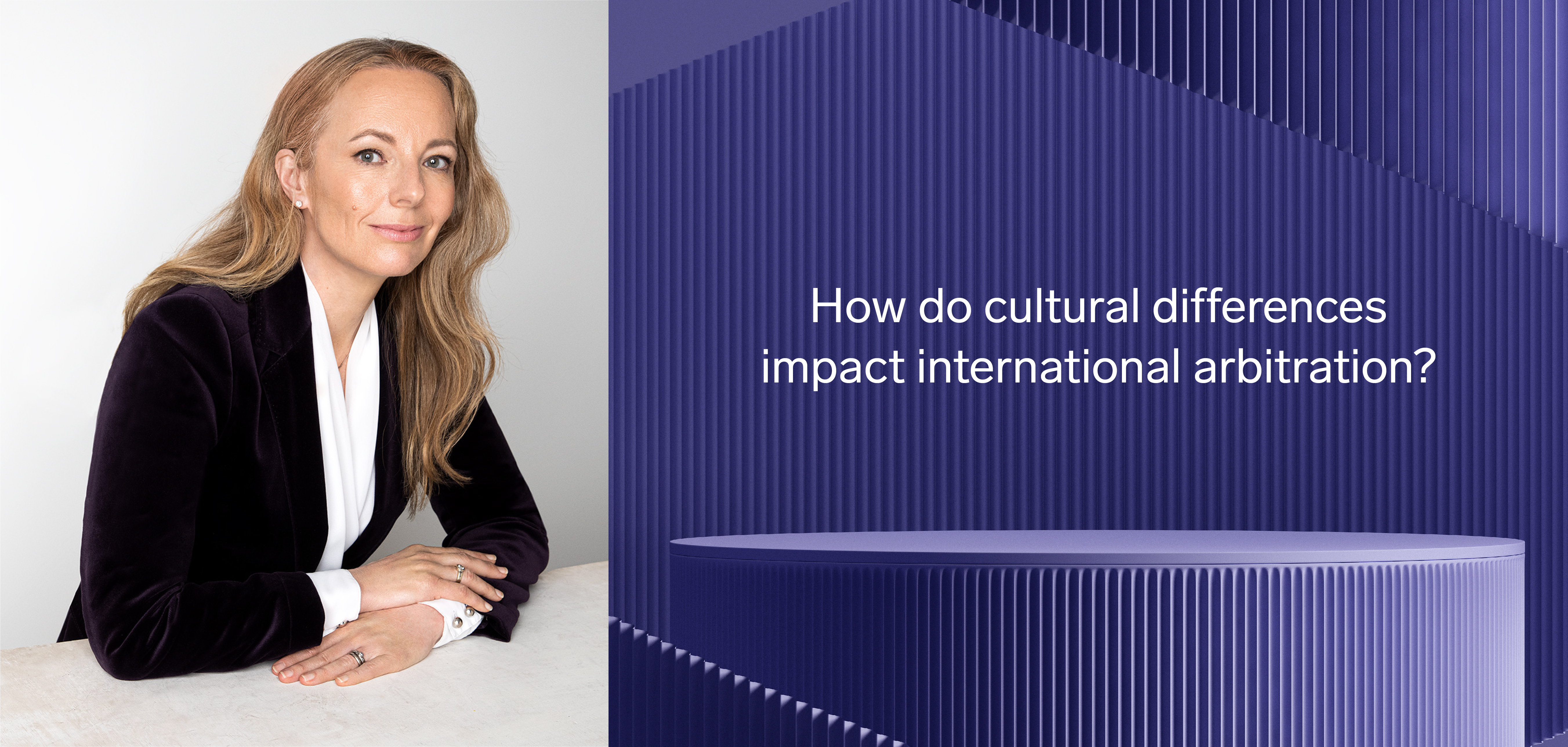Spotlight Talk: Gisela Knuts
How do cultural differences shape the conduct of arbitrators in international arbitration? Gisela Knuts, an independent arbitrator with extensive experience in international dispute resolution, emphasises the critical importance of understanding these differences. She sheds light on how they impact communication, procedures, and decision-making, underscoring the need for cultural sensitivity to ensure fair and impartial proceedings.
Published 2024-06-04

How do cultural differences impact the conduct of arbitrators during hearings? For instance, are there variations in communication styles, procedural preferences, or decision-making approaches across different cultural backgrounds?
Cultural differences have a significant impact on how international arbitration is conducted – both during the hearing and overall. Often, the arbitral tribunal becomes aware of the cultural differences between the parties and among the tribunal members before the hearing, as cultural differences influence the parties’ expectations of the proceedings from the start. These differences often become clear during the Case Management Conference and when discussing PO1 and the Procedural Timetable.
In relation to the merits hearing, there are considerable cultural variations regarding the parties’ preferences and expectations. These variations often relate to procedural issues (how long should the opening statements be? is there a need to go through the documentary evidence? what questions can you ask on cross-examination?). But more subtle differences, such as how the parties address the arbitral tribunal and what communication style they use, are also commonplace.
The question of how cultural differences impact the tribunal’s decision-making dynamics would merit a publication of its own, and it is one of the most intriguing aspects of international arbitration. The chair’s role is often to manage these cultural differences between the tribunal members to reach a unanimous decision. In my view, this is one of the most exciting parts of sitting on a three-member tribunal.
What challenges do arbitrators face when navigating cultural nuances in international arbitration? Are there specific instances where cultural misunderstandings or clashes have affected the arbitration procedure?
There are many challenges in this respect, particularly when the parties have different expectations of what the hearing should look like. One party may expect a quick and pragmatic hearing where formalism is kept to a minimum, while the other may expect a full-fledged, highly formalized hearing. In my experience, issues arise when the tribunal fails to adequately address the parties’ expectations at the outset, and where counsel operates on the assumption that the hearing will be conducted as in their local courts or national arbitration. Maintaining an open dialogue about the parties’ expectations is key. The tribunal must not be afraid to assert control over procedural issues; kicking the can down the road is seldom a good strategy in this respect.
In your experience, how can arbitrators effectively address cultural diversity to ensure fair and impartial proceedings? Are there best practices or strategies that promote cultural sensitivity and understanding in the context of arbitration hearings?
To me, maintaining sensitivity to cultural diversity is one of the strongest arguments against unilateral appointments, i.e., that all tribunal members would be appointed by an institution rather than having party-appointed arbitrators. It often helps to address issues of cultural diversity during the hearing if the party-appointed arbitrators are from the same or similar legal cultures as the parties. This supports both the tribunal in understanding what the parties expect and the parties’ perception that their cultural preferences have been adequately considered. A strategy that often works quite well to promote cultural sensitivity and understanding is to maintain an open dialogue throughout the hearing. Here, the chair’s role is key, and they should invite the party-appointed arbitrators to share their views on potential cultural differences before the hearing to raise awareness of these issues among the tribunal members in advance.